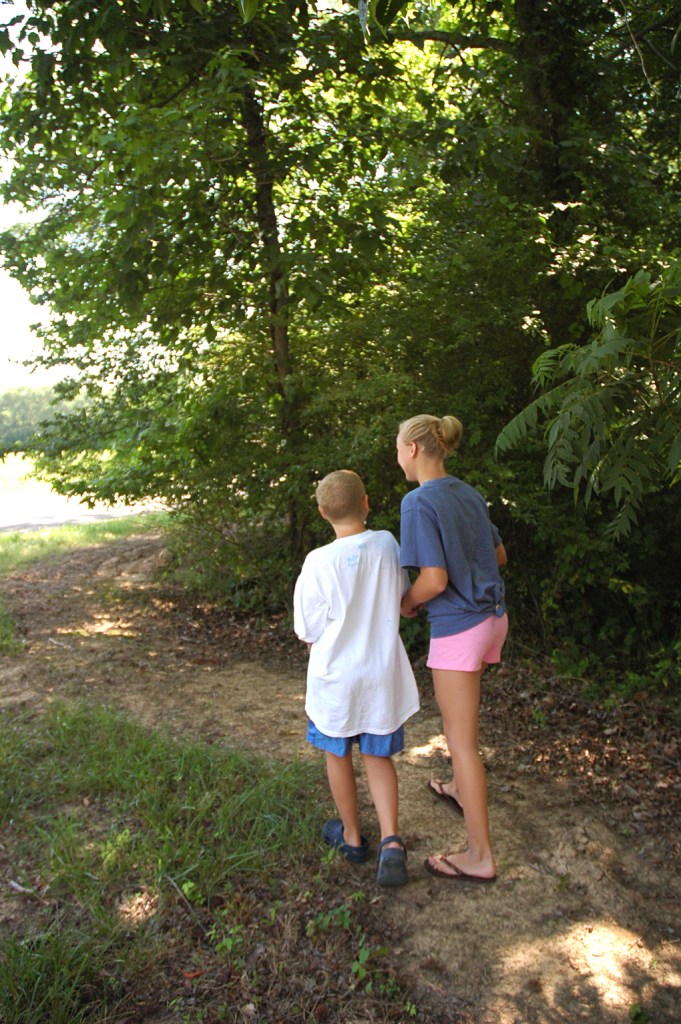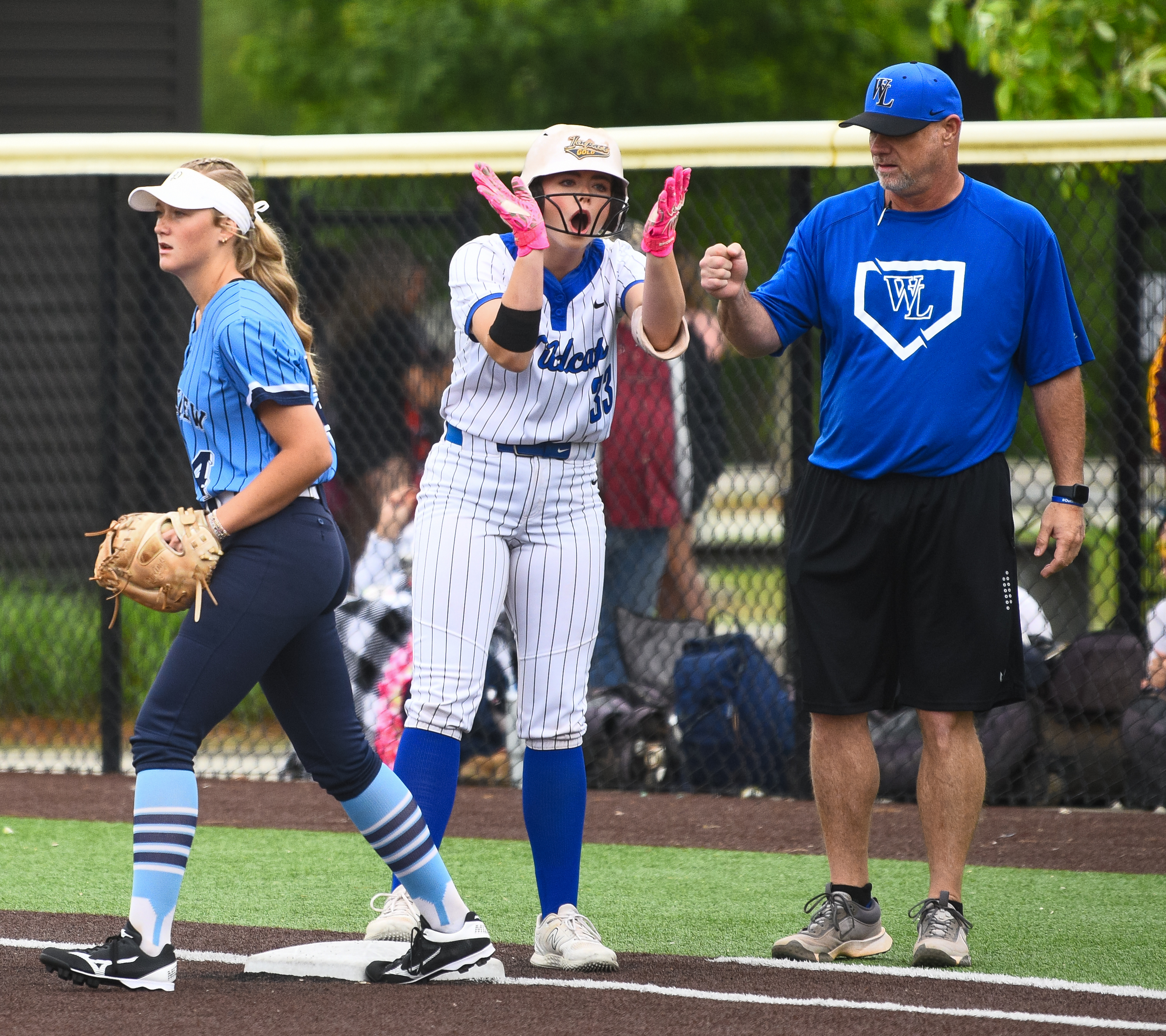Are your kids ready for camp?
Published 9:43 pm Saturday, June 10, 2006

- Are your kids ready for camp?
At 11, Katlyn Gladwell has one summer of camp behind her and is ready for a five-day stay away from home this summer.
Her mother, Marcie Gladwell of Priceville, said she had concerns about sending her daughter to a three-day summer camp last year. Gladwell worried Katlyn might become homesick.
After Katlyn’s successful stay last year, Marcie readily approved her daughter’s plans to go to CentriKid Camp in Cleveland, Tenn., for a four-night, five-day summer camp retreat with her church, First Cave Springs Baptist in Priceville.
Summer camps are a great way for parents to let their children enjoy nature and have new experiences away from video games, cell phones and iPods.
“Kids nowadays don’t play outside like they did when we were growing up,” said Ann Sheets, president of the American Camp Association, headquartered in Indiana. Sheets said there are about 12,000 camps across the United States.
But how do parents know when their kids are ready to be away from home and how do they handle the separation?
Marcie Gladwell waited until her daughter was ready.
“She said that she wanted to go so I said, well, it was time for her to go,’” she said.
Letting go
Watching children become more independent can be hard for parents. Marcie said her three older children had been to summer camp but it was different with Katlyn, her “baby.”
But the benefits of a Christian summer camp overrode her reservations, she said.
“When they come back they have so much more of an understanding of God and what kind of a Christian they’re supposed to be,” she said. “They get closer to their friends too. There is a lot of bonding.”
Mary Lynn Usery of Elkmont said she feels being with new people is enlightening for children. Her daughter Anna Grace, 13, attends 4-H camp.
“I think she got to experience some things that she had never done before too,” Mary Lynn said. “She benefited from it because she had to live with these people. It gave her an opportunity to meet girls and boys from other schools and have experiences with them.”
Sheets said bonding is a benefit of camp.
“Children tell us in studies that ‘camp helped me make new friends,’” she said. “It broadens the child’s horizons, from knowing new people, knowing themselves and experiencing new things.”
Children get to experience new things and may experience a more diverse community from their own while away at camp.
“They get there and they see so many people of different nationalities and they’re all worshiping together,” Marcie said.
She said that the children are involved in so many activities and projects that they would otherwise probably never experience in the same manner at home.
“The worship rally within itself is going to be a very different experience for her,” Marcie said.
She said Katlyn would also have opportunities to participate in arts and crafts like purse making, beading, singing and music, outdoor activities like swimming and also fellowship and quiet time.
Which camp?
The American Camping Association suggests making the choice of which camp to go to a joint decision between parent and child.
“The child should not feel like they are being sent away,” said Sheets. “Make the choice together. Make sure they’re into it.”
Camps are now often specialized, including sports camps, church camps and club camps. Anna Grace is an experienced camper. She has been involved in the 4-H camp located in Columbianna for the past two years, through Elkmont elementary school. Anna Grace is president of 4-H at her school.
Camps should be chosen based on the child’s unique interest and needs. To go to 4-H camp, students are given a chance to write a letter explaining why they should be chosen to participate in the camp and are then selected based on occupancy and eagerness to go.
“Anna Grace is the type of child that doesn’t do anything half way,” Mary Lynn said. “She just goes at things full force. She was so determined to go, so I was confident in her going.”
Mary Lynn said their choice for the camp was an easy one because Anna Grace already had interest in the activities offered by the 4-H camp, such as swimming in an Olympic sized pool and fishing, which is one of Anna Grace’s favorite outdoor activities.
The schedule for the three-day camp is filled with unique activities.
“Everything was very structured,” Mary Lynn said. “They had breakfast at a certain time, and all the activities where structured, so they got in as much as they could.”
Felicia Lambert also praises summer camps.
She has two children, Jessica Lambert, 12, who attends Athens Middle School, and Gregory Lambert, 10, who attends Athens Intermediate School. Both children have gone to Camp Sumatanga in Gallant, Ala., and Jessica will head back again this summer. Camp Sumatanga is a Methodist church resident camp for children from the third grade and up.
“It’s all about their personality,” Felicia said. “They’ve never had problems staying with family or friends. So I was comfortable with them going.”
Handling the separation
Sheets said a lot of children heading to camp will be away form home for the first time. “If they’re going away to a resident camp, let them spend a night away from home before they go so they know it’s not really a big deal and people do this all the time,” said Sheets.
Parents should be familiar with the camps and perhaps visit them beforehand to let the child know what to expect, she said.
Felicia said age also may determine how children handle camp. There are also things parents can do to lessen the stress of being away from home.
“They do not encourage parents to call but we can write letters,” Felicia said. “Two days before they leave I write a letter so she has it when she gets there.”
Marcie Gladwell suggests that parents find other things to do while the children are away at camp to keep their minds off how much they miss them. Also, parents can find special ways to let children know the family is thinking of them and encourage them to have fun.
“We’re going on a cruise while she’s gone,” she said. “But they encourage you to write letters and what I did is make a card for her, for each day, and then give them to her chaperon to deliver each day.”
Sheets agrees. She said to write cheery letters, and parents should be careful how they word things to deter homesickness.
“The most discouraging letters are the ones that say ‘I miss you so much….’,” said Sheets.
The first time away from home is always harder.
“The first year my daughter went, she was a little leery but when she got home all she could talk about was her favorite part of the camp,” Felicia said.
Being on their own was an important learning experience for her children, she said.
“It encouraged them to depend on their friends and counselors,” she said. “They meet several little friends and then afterwards they write letters back and forth.”
Letting her children go to camp was easier because she knew the people from church who would be there. She said she also was comforted that one counselor would be assigned to stay in each room with the elementary children.
Parents can also look up camps on the American Camp Association Web site at www.acacamps.org to inquire about the accreditation of their child’s camp.
“There are only about 2,500 camps in the U.S. that are accredited,” said Sheets.





